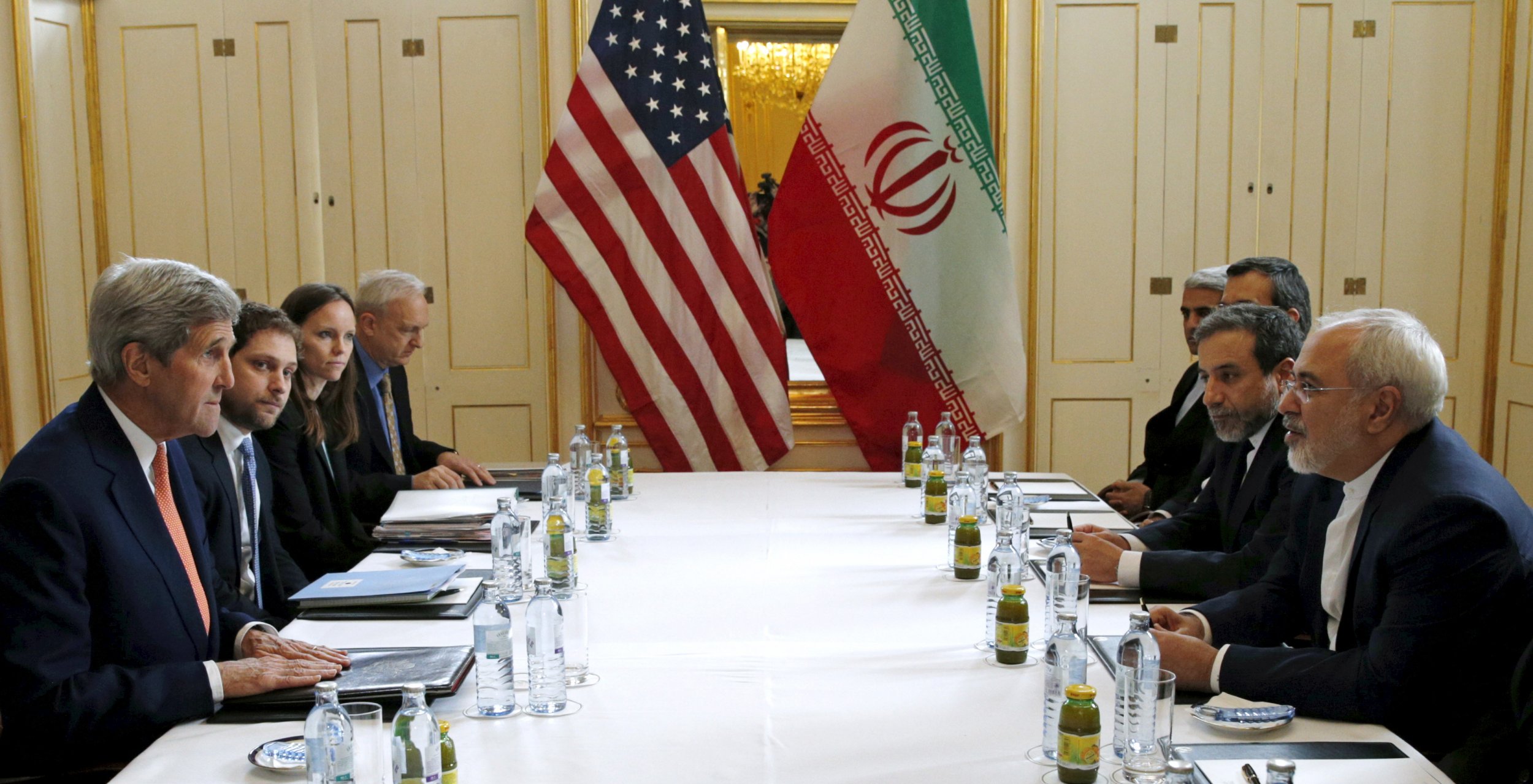
This article first appeared on the American Enterprise Institute site.
As the United States and the international community lift sanctions on Iran and release to Tehran up to $100 billion in frozen assets, the Islamic Republic has announced that it has released four Iranian-American hostages. A fifth American, Matthew Trevithick, is also being released by Iran, U.S. officials have reported.
President Barack Obama and Secretary of State John Kerry might celebrate the release as a diplomatic coup, never mind that the deal abandons Robert Levinson, the longest-held hostage. But it's worth remembering what happened the last time the United States effectively bribed Iran to release hostages.
There is broad consensus today that the Reagan-era "arms for hostages" scheme was a strategic and moral mistake. Few people remember its genesis, however: the desire to cultivate relations with relative moderates and pragmatists in the Iranian power structure in order to privilege them relative to the hard-liners.
In other words, the logic behind the Reagan-era strategy was exactly what Obama's team would embrace three decades later.
There are other parallels. Between 1984 and 1992, Iranian proxies in Lebanon kidnapped 24 Americans. Most of the captives languished while, according to the Tower Commission report, Ronald Reagan obsessively peppered his staff with questions about their condition and the possibilities for their release.
The Reagan administration may have criticized President Jimmy Carter for negotiating under fire, but Reagan's team convinced itself that maintaining a black-and-white approach to terrorism was not pragmatic when it faced its own hostage crisis.
Reagan had once criticized Carter for offering incentives to the Iranians, but his administration did just that: On January 17, 1986, Reagan signed an order authorizing the sale of guided missiles to Iran. Once Iran received the missiles, it would order Hezbollah and other proxy groups to release American hostages.
Today, Iran may not officially be receiving weaponry as part of the deal, but in reality it has—it has already begun a massive shopping spree in Russia and China.
At first glance, Reagan's approach to Iran seemed to work. For 15 months beginning in June 1985, no Americans were kidnapped in Lebanon. After Iranian proxies released the Reverend Lawrence Jenco, who had been in captivity for 564 days, the United States delivered additional spare parts to Iran.
No sooner had American officials offloaded the last shipment of military equipment, however, than kidnappers seized three more Americans. Simply put, the arms trade gave Iran an incentive to seize hostages.
The White House and State Department might celebrate the release of American hostages, but in reality the release is less an epiphany on Iran's part that hostage-taking is wrong than it is a realization that hostage-taking is profitable.
Not only does Iran effectively get $25 billion per hostage, but it also wins the release of seven Iranians imprisoned in the United States—Iranians who were detained not for the "crime" of being a newspaper reporter, as in the case of Jason Rezaian, or a Christian, as in the case of Saeed Abedini, but because they actively sought to smuggle sensitive technology in circumvention of sanctions and law.
Make no mistake: We negotiated with terrorists, and the terrorists won. There is no change of heart among the Islamic Republic leadership. Neither Supreme Leader Ali Khamenei nor his "Mr. Fix-It," President Hassan Rouhani, have changed their tune and foresworn the behavior that led Iran to become an international pariah.
Rather, what we see is a pragmatic desire in Tehran to profit and to imply moral equivalence between the American hostages held in Iran and those Iranians caught seeking to subvert the United States.
The only question now is how long it will be before the next American is seized in Iran and whether, with the precedent set by Obama and Kerry, the United States will be able to afford the price.
Michael Rubin is a resident scholar at the American Enterprise Institute and a former Pentagon official whose major research areas are the Middle East, Turkey, Iran and diplomacy.
Uncommon Knowledge
Newsweek is committed to challenging conventional wisdom and finding connections in the search for common ground.
Newsweek is committed to challenging conventional wisdom and finding connections in the search for common ground.
About the writer
To read how Newsweek uses AI as a newsroom tool, Click here.








